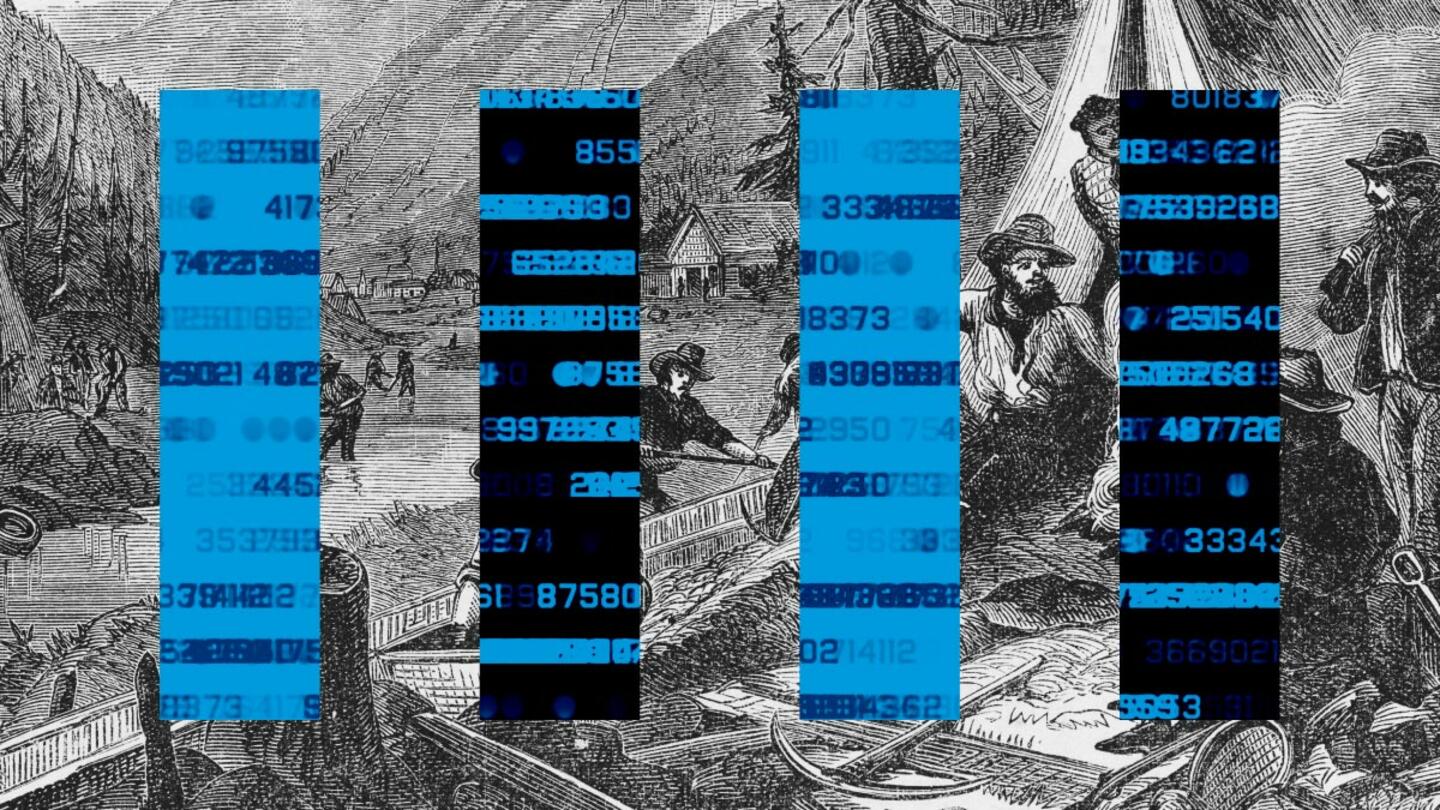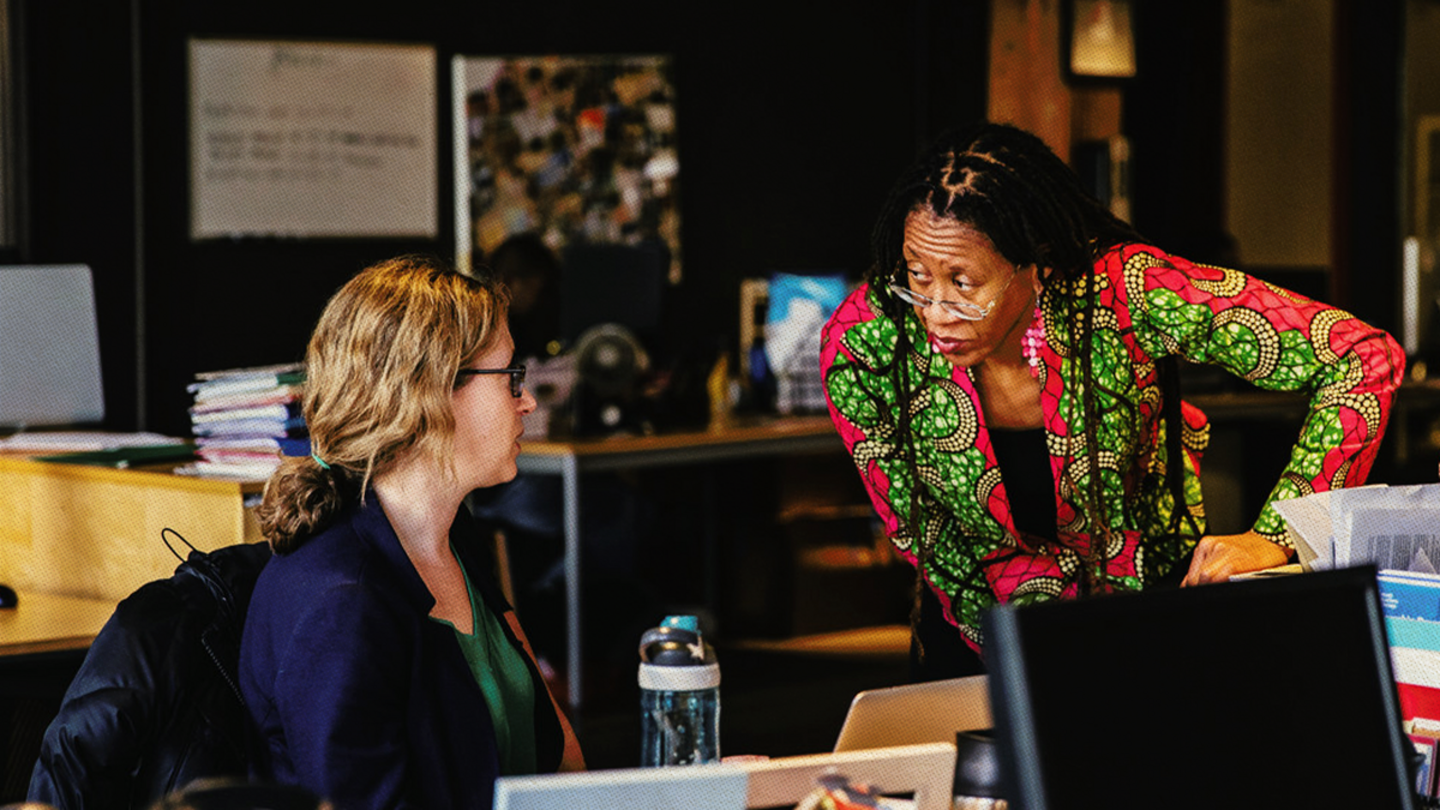In the modern job market, three seemingly simple words have caused significant harm to the economy: “bachelor’s degree required.” With nearly 10 million open jobs in America, about half still list a bachelor’s degree as a requirement, even when it might not be necessary.
Byron Auguste calls this issue “Tear the Paper Ceiling.” It’s also the name of a nationwide coalition of employers led by the nonprofit Auguste co-founded, Opportunity@Work.
“A paper ceiling is a metaphor for something that is keeping people from rising,” he explained. “Degree discrimination is not illegal, but it’s keeping millions of people from jobs employers need to fill.”
It’s contributing to a nationwide talent shortage and threatening the long-term viability of businesses. “Every manufacturing company is really facing a massive talent shortage,” said Betsey Strobl, chief talent officer at Trane Technologies, a partner in the Tear the Paper Ceiling coalition. “Because of that, the future sustainability of their businesses could be at hand.”
Opportunity@Work is leading a grassroots movement to drop unnecessary degree requirements and help more employers become aware of the 70 million working-age people in America who have gained their skills through military service, community college, workforce training programs, or on-the-job experience.
To describe this category of workers, the nonprofit coined a now-industrywide term: STARs, meaning workers who do not have a bachelor’s degree but have become skilled through alternative routes. Hiring people with these backgrounds is a win-win because it opens a diverse talent pool for employers while empowering skilled workers to reach their potential and secure fulfilling jobs.
“There’s so much talent to unlock in this country,” Auguste said. “The starting point is to tear the paper ceiling.”
Many degree requirements defy logic
At the root of this issue is a gap between job requirements and the actual qualifications of the American workforce. Over the past 20 years, 70% of emerging jobs have listed a bachelor’s degree as a requirement — but only 40% of Americans have one. It defies logic. “To say you need a medical degree to do surgery, that’s common sense,” said Auguste. “But to say you need a bachelor’s degree of any kind to be a salesperson, to be a manager, to be an IT support specialist, it makes no sense.”
Auguste’s father is an example of the untapped talent in the workforce 50 years ago. While employed at a factory in Detroit in 1971, his employer offered him an opportunity to learn the programming language COBOL. This chance for on-the-job training allowed Auguste’s father to learn a new computer language and eventually move their family into the American middle class. Auguste believes today’s companies should look for individuals like his father, those with talent and a drive to learn on the job.
“At a human level, it’s really important to describe people by the skills and attributes that they have, not by the degrees that they lack,” said Auguste. This shift in perspective is crucial for unlocking hidden potential in the workforce.
Focusing on the whole person rather than a paper credential
Opportunity@Work has developed an online platform that helps companies identify the skills that applicants can bring to the table. This tool enables employers to see the available talent pool with specific skill sets in any desired location, helping to bridge the gap between job requirements and actual qualifications.
In the last year, the campaign to Tear the Paper Ceiling has gained national attention, with over 65 large employers joining the movement and changing their hiring practices.
One of those companies is Trane Technologies, which employs over 25,000 workers nationwide. Strobl highlighted the challenges in acquiring talent for the future, noting that the technician landscape had over 38,000 job openings last year alone. To address this, Trane has adopted a strategy that targets STARs, focusing on the entire individual and not just a paper credential.
“The skills-forward strategy is really making sure that we look at the whole person rather than a credential that’s on paper,” Strobl explained. “The rest of the skills necessary, we’re going to give you. We’re going to train on the job as part of our apprenticeship program.”
Sign up for Stand Together's Rethinking Work & Learning newsletter to get the latest stories, ideas, and trends on the future of employment.
Wendell completed Trane’s apprenticeship program and is now a full technician at the company. Before this, he had attended college for a year but soon realized it wasn’t the right path for him. After leaving school, he learned how challenging it is to find employment without a degree.
“When people hear that I dropped out of college, they automatically have a stigma,” he said. “‘You can’t handle hard work,’ and things like that. That’s just not the case at all.”
Scott Thompson, a service operations leader at Trane, started there without a four-year degree. He noted that younger technicians often lack direction initially, but through the program, they gain a sense of belonging and the opportunity for a full career.
Wendell agreed. “It was good that I got some structure to at least climb that ladder and get through the apprentice part of my job and graduate to becoming a full technician,” he said.
It’s been good for Trane’s business, too. “Hiring STARs — it gives us the talent we need with the skills we need to deliver for our customers and for the company,” said Strobl.
Meaningful work is a valuable part of the human experience
In its first year, this coalition of employers has created almost 30,000 additional jobs without degree requirements. And Auguste said his organization is just getting started.
“Right now, we have about 65 partners in the Tear the Paper Ceiling coalition, and that’s growing week by week,” said Auguste. “In the next decade, Opportunity@Work and our partners will enable a million STARs to gain better jobs through the networks and the tools that we’ve set up. Those STARs will be earning $20 billion more a year than they otherwise would.”
The financial benefits are important, but they’re not everything. Creating more opportunities for meaningful work is critical to the future of the American workforce. “I think it’s definitely important for people to do what they like to do,” said Wendell. “If you’re doing something that you like, you know you’re never gonna get tired of it. You’re never gonna get bored.”
“Work is very meaningful to people,” said Auguste. “It’s one of the main places where you find out what you’re great at. These are incredibly valuable and valued parts of the human experience. Once employers understand that there are 70 million Americans with skills without degrees, then suddenly there’s a whole world of possibilities for how we can solve the problems with the labor market.”
***
Opportunity@Work is supported by Stand Together Trust, which provides funding and strategic capabilities to innovators, scholars, and social entrepreneurs to develop new and better ways to tackle America’s biggest problems.
Learn more about Stand Together’s efforts to transform the future of work, and explore ways you can partner with us.

Why AI may help more people achieve the American Dream.

Data centers are at the forefront of the ‘new economy.’ But what exactly are they?

Here’s how to bridge the disconnect between employers and employees.

Lessons learned from Colorado.
